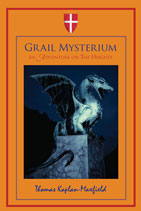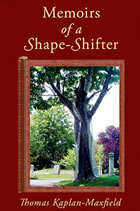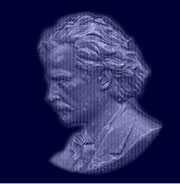
Memoirs of a Shape-Shifter: Introduction
The soul of Gloucester is split as the souls of its sons and daughters are split, as a rock may be split by chisel and mallet. The town clings by fingernails to one mass of jagged granite that is Cape Ann, surrounded on three sides by the northern manic sea. The sea throws itself at the rocky shore like a demon lover, caressing and fleeing, caressing and retreating. On the highest point of the Cape, originally the center of old Gloucester, lie deep woods moist with cleft life: pines, oaks, maples, firs; owls, bluebirds, robins, chickadees. Nearby down rambling old stone roads crumble the ruins of many a cellar hole—ancient foundations of houses that once lined the streets.
There Gloucester was first settled by English Puritans as a farming community in the 1600s. But when the granite proved too diffcult to farm, the settlers moved downhill that their men might earn a living by the sea. Eventually the families established the town as the premier fishing village in New England. For day after relentless day every dogged Odysseus, leaving behind his woman, set sail on the salt-clean sea and returned boat heavy with the day’s catch, heart hardened by the cold Goddess Atlantic. Drunk, knotted hands twitching on tables laden with fish-bought coin, their silent dinners served by stranger-women, the fishermen and lobstermen came to rage at the fixed course of their common fate.
Over time the men of Gloucester abandoned the decaying houses to the spinsters and whores, the healers, witches and Druids, and the woods up the hill became known as Dogtown, after the witch Hecate’s totem. There the women suffered their own splintered lives, without men to mend roof or shingle, to balance the scales. Dogtown’s women came to rage at their share of fate, splitting their bodies for the men below while spitting venom and curses, in their own dog-protected ways becoming as fearful as the men.
Devotees of a religion older than Christianity, some of those women tended to the discards of the spoils below: sacred knowledge of the earth, the use of herb and mineral, bark and fresh water. While heavenly, God-driven men tamed a world with reason and commerce, the witches and Druids of Dogtown huddled close to the trees, the earth’s mantic, stone-clad root.
Two centuries later sturdy Finns arrived to mine the granite skeleton of Cape Ann, sending boxcar-sized blocks southward to build the mansions of the newly rich. Men worked land and sea until nature gave up her all, as she will for a time. The seas were finally emptied out while many a hidden rain-filled quarry was forgotten in the woods, for no longer is Gloucester a resource of stone, much less of fish. Yet still in the Dogtown air lingers the spirit of the first women arrrested in the Salem witch trials; the moist, piney woods, female smells where cleaves the mind of reason.
Nowadays down in the village harbor old sailors huddle on cracked wooden benches that line Rogers Street. They stare out to sea, lick salt-dried lips and remember, fists clenching warm beers. They totter home at midnight, drunk down narrow, pitched streets of crumpled vinyl-clad houses, mumbling snatches of sea shanties. Kicking at the emasculated dreams of lottery tickets, leering out of red-rimmed eyes for the next hit of heroin, they long to forget their fathers’ dreams of faraway tropical isles teeming with soft brown women and dangling fruit; to forget the hounding.
Out of the long line of woodland Druid mothers and seafaring, stone-cutting fathers, Gloucester contrived to give birth to a daughter, Nikki Helmik, who was made to carve out the town’s divided nature, bearing the land’s fault line within.
Buy a copy of my new e-book Grail Mysterium: An Adventure on The Heights here (the print version is available here). It's a mystery-adventure story set at Boston College.
Sample or purchase Grail Mysterium at Smashwords: Type in Coupon Code EE67T when buying the ebook to receive 20% off through October 2012.
Read reviews of Memoirs of a Shape-Shifter at Kepler Press.
Buy the print version of Memoirs of a Shape-Shifter from Amazon.
Buy the e-book of Memoirs of a Shape-Shifter from Amazon.
"Gothic America" is also available on the CommonDreams website.
Read my interview with Reader Views on Memoirs of a Shape-Shifter here.



